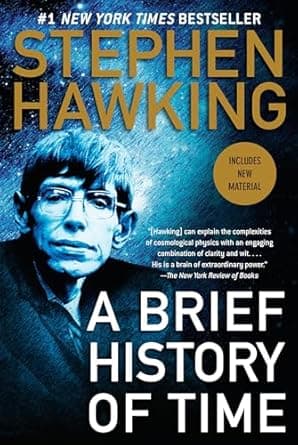
Book Stats
680
Upvotes
67
Downvotes
+613
Net Score
A Brief History of Time
by Stephen Hawking
Description
Hawking's accessible explanation of cosmology, black holes, and the nature of time, bringing complex physics concepts to general audiences.
Stephen Hawking's groundbreaking work makes the most fundamental questions about the universe accessible to non-specialist readers. From the Big Bang to black holes, from quantum mechanics to the search for a unified theory, Hawking explains cutting-edge physics in language that anyone can understand.
The book's central theme is the search for a "theory of everything"—a single set of equations that would describe all physical phenomena in the universe. Hawking shows how Einstein's theories of relativity and quantum mechanics, despite their individual successes, are incompatible and how physicists are working to reconcile them.
Hawking's discussion of black holes is particularly fascinating, revealing how these cosmic phenomena challenge our understanding of space, time, and information. His discovery that black holes emit radiation (now called Hawking radiation) suggests that even the most extreme objects in the universe follow quantum mechanical principles.
The book's exploration of time raises profound questions about causality, free will, and the nature of reality. Hawking shows how time is not absolute but relative, affected by gravity and motion, and how the universe might have no beginning or end in the traditional sense.
Throughout the work, Hawking maintains a sense of wonder about the universe while acknowledging the limits of human knowledge. He shows how each scientific advance reveals new mysteries, suggesting that the quest to understand the universe is as important as any final answers we might discover.
The book's discussion of the anthropic principle—the idea that the universe's properties seem fine-tuned for the existence of intelligent life—raises important questions about whether our presence in the universe is coincidental or somehow necessary.
A Brief History of Time became an international bestseller, proving that public appetite for serious science communication is greater than many experts had assumed. It demonstrated that complex scientific ideas can be made accessible without being oversimplified, inspiring a generation of science writers and communicators.